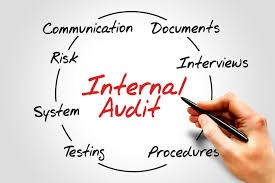
Recommended Duration: 5 Days
Course Overview
The Board of Directors has the ultimate responsibility for operations and processes involving risk management and control, but, managers with operational responsibility are charged with ensuring that the risk management, steering and control processes work according to the guidelines of the Board. This includes continuous evaluation of control methods, which should be identified, appropriate, effective and stable. Good risk management, steering and control requires clearly defined delegation of responsibilities and duties, as well as observance of the duality principle, which means that no one should handle a routine or oversee a case without control or supervision. This online course has been designed exactly like the in-class version. All training materials are already loaded in the learning management system. You will also write some tests which have as well been loaded. The test is to enable you assess yourself if learning has actually taken place and your score will be shown by the learning management system. Should you have any need to ask questions or request explanations on technical issues, please arrange a video conference with your instructors by sending an e-mail to fix a suitable date and time to megaheads@gmail.com
Learning Objectives
At the end of this training session, participants will be able to:
- Identify those “high-risk” processes—and build control systems that mitigate the risk
- Develop control-based audit recommendations that truly help management meet tactical and strategic objectives
- Implement full compliance with the SEC Code of Corporate Governance on risk and internal control
- Guide against regulatory infractions and subsequent penalties
Course Outline
- Definition of audit
- Internal control and management
- Interviews with top management
- Collecting and corroborating evidence
- Audit universe
- Methodology
- A preliminary risk assessment
- The planning stage of audit methodology
- The testing phase
- The exit meeting
- Risk based assurance plans
- Scheduling of audits
- Building the audit team
- Create a Mission Statement - A team without a mission is like an eye without vision
- Clear roles, tight goals and firm budgets
- ‘If you can laugh together, you can work together’, Robert Orben
- Teams need processes, review and feedback
- ‘It is not a question of how well each process works, the question is how well they all work together’. Lloyd Dobens
- ‘Wearing the same shirts doesn’t make a team’, Buchholz and Roth
- Consistently communicate and play your part in the team.
- And 54 more exciting topics on Internal Auditing and Control

